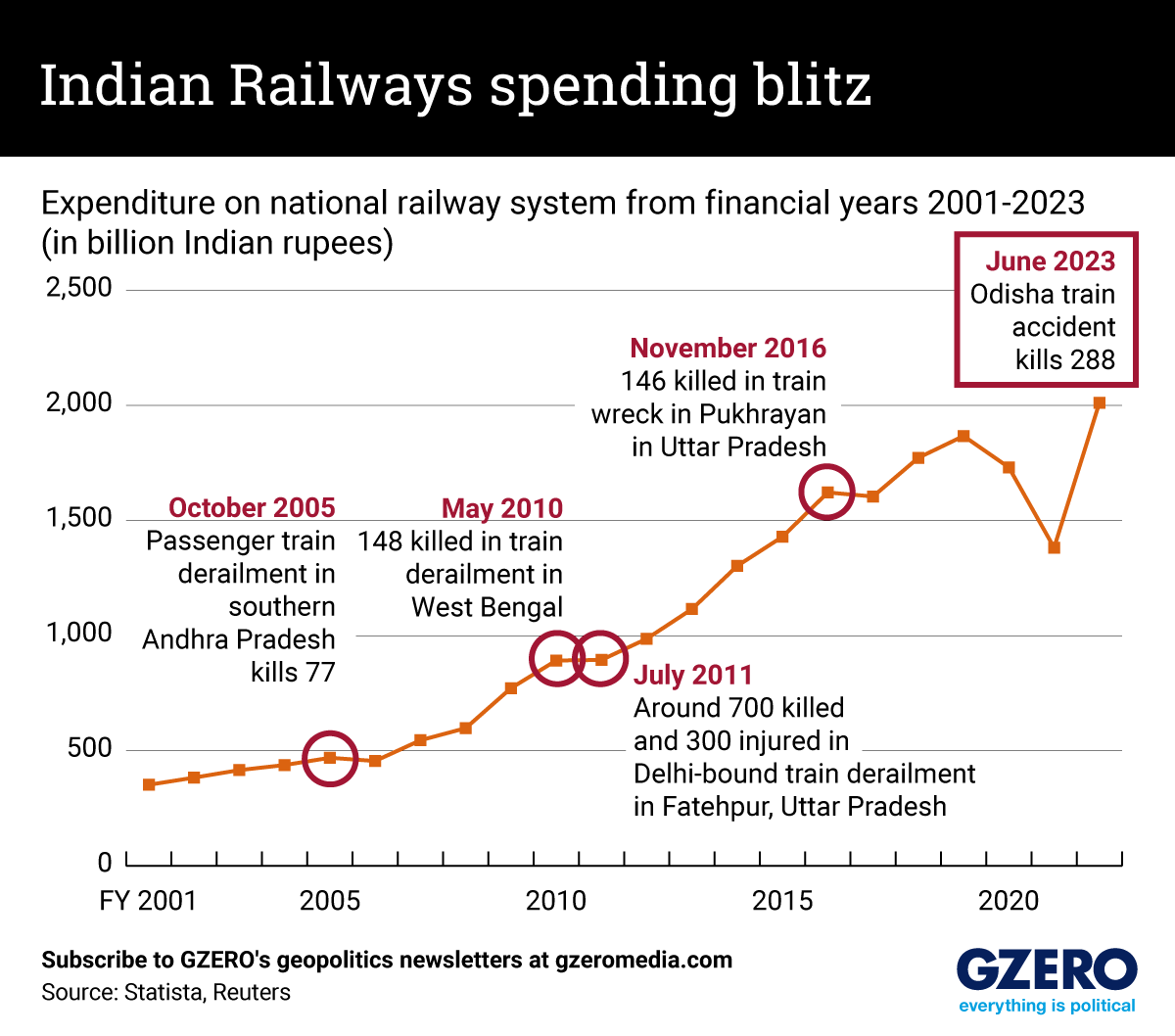The scenes from last week’s three-way train wreckage in the eastern Indian state of Odisha were devastating. One day after the crash that killed 288 people, PM Narendra Modi was set to inaugurate a new express train from the southern state of Goa to Mumbai. The optics weren’t good, of course, and he canceled the appearance.
Expanding the country’s railway system has been one of Modi’s signature policies since coming to office in 2014. The total length of electrified railway lines throughout the country has jumped from 21,000 kilometers in 2014 to now over 50,000 kilometers.
And the financial investment has been massive too: The government has spent almost $30 billion on the railway this past financial year alone, up 15% from the previous year. Still, India’s railway system continues to suffer regular calamities, with many criticizing the government for throwing money at expansion but underinvesting in maintenance. We take a look at government spending on the national railway system and key train accidents since 2001.
